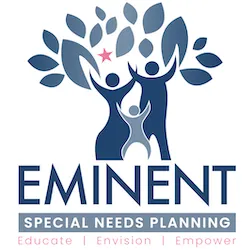Planning Services
Educational Workshops & Special Needs Trusts Preparation Process with Complimentary Initial Consultation
Initial Paperwork:
You will receive Life Planning Data Forms & Letter of Intent Forms.
Scheduled Meeting:
A meeting with family, caregivers, & providers will take place to review the provided information. This time will allow for additional questions to be asked & answered.
Contact Others:
As needed, contact will be made to extended family to help them understand the process as a whole & to inform them of their role moving forward. If needed, Vertical Awe* will obtain their legal documents for review at no charge.
Prepare Plan:
Plan preparation will officially begin. This includes all legal documents, codicils, & amendments for all family members involved. Legal documents can include: Special Needs Trust, Will, Family Trust, Living Will, Powers of Attorney, & Legal Financial Issues.
Finalize Plan:
With a notary & two witnesses present, documents will be legally signed & finalized. Families will be given a binder with all documents, forms, & instructions for further/future use.
Implement Plan:
After signing all legal documents for the plan, a Tax ID# for any special needs trusts will be obtained. Steps for changing beneficiaries for all accounts will be shared & followed up on.

Additional Services
Guardianship &/or Conservatorship Filling
Government Benefits
Multi-Family Home Planning
Medicaid
Miller Trust
ABLE Act Accounts
SNT Fairness Act Information & Assistance
PLANNING SERVICES AVAILABLE NATIONWIDE
Frequently Asked Questions
Why does planning seem so imperative?
Why now?
The Good News: The government has a plan for you.
The Bad News: The government has a plan for you.
Special Needs Planning is a greater necessity today than ever before. Planning plays an important role in the daily living of the person with special needs, as well as planning for when the primary care providers are no longer able to care for them.
You wouldn’t go out for an evening and not make sure that whoever is caring for your loved one with special needs knows what to do, how to do it, and how to reach you in an emergency. What would happen today if you were unable to provide care for an extended period of time or permanently. To do less would be risking the peace of mind of everyone involved.
Proper planning speaks for those who cannot speak for themselves. If there is no information for the care of the person with special needs or the proper documents are not prepared those who take over the care of your son, daughter or other loved one are going to have a difficult time trying to figure things out.
Advances in medical and social treatment for people with developmental disabilities have increased their life expectancy. Greater longevity for the person with special needs creates a greater need for parents or caregivers to do proper planning. Planning that incorporates daily routines and needs as well as future financial needs.
The future guardianship of your child with special needs is a planning issue to discuss now. The law provides for all people who reach age 18 to be considered an adult. This means parents no longer have legal authority on behalf of their child, even though they may have special needs. This can be remedied with the proper planning. Parents need to know their legal options for continuing to provide the appropriate care and supervision for their child. However, if family members do not make provisions for the supervision, care and security of the person with special needs the courts will make important decisions regarding guardianship, trustees and distribution of assets.
Are there common mistakes to look out for?
Common Mistakes Families And Advisors Make In Special Needs Trusts And Planning
1. Fail to ask every client, “Are you now or will you be financially or personally responsible for a person with special needs?”
2. Try to create their own version of a Special Needs Trust.
3. Do not specifically exclude, without disinheriting, the person with special needs by name from Wills and Trusts.
4. Think that excluding the person with special needs from wills and traditional trusts is sufficient planning.
5. Exclude person with special needs and give money to others for their care.
6. Give the person with special needs authority in trust provisions, (ie. change trustees and remainderman, request reports, and include the “Crummy” Trust withdrawal provision).
7. Coordinating the plan with other advisors (legal, financial, tax, insurance, and government agencies) is not addressed.
8. Not familiar with the different types of Special Needs Trusts and the appropriate circumstances or need for their use.
9. Not aware of Miller or Qualified Income Trusts and their use in planning.
10. Fail to change beneficiaries on their life insurance, pensions, annuities, etc. and do not transfer assets into their traditional Revocable Living Trust.
11. Include language in the Special Needs Trust such as “support and maintenance” and “food and shelter,” that can adversely affect government entitlement amounts, benefits, and eligibility.
12. Do not consider “Lookback/Payback” penalties (loss of benefits up to five years or) for improper transfer of assets from their name in order to qualify for government benefits.
13. Draft Special Needs provisions in a traditional Revocable Living Trust improperly or in a will as a testamentary trust without considering need for a Living Trust ie. Who is funding the trust and when?
14. Do not consider the effects other family members’ estate plans will have on the person with special needs – grandparents, divorced parent, remarriage, siblings, aunts, and uncles (laws of intestacy and per stirpes distributions by grandparents and others could leave assets directly to a person with special needs).
15. Divorce issues not addressed such as the impact of child support on government benefit eligibility for either a minor or adult child with special needs.
16. Overlook sources of income and their effect: Social Security, Veterans Administration, State retirement, Federal Government, earned income, structured settlements, child support, adoption subsidies, etc.
17. Use Irrevocable Life Insurance Trusts (ILITs) as Special Needs Trusts.
18. Appoint guardians for “minor’ children, but do not specifically state guardianship for an “adult incapacitated child.
19. Do not consider using Durable Power-of-Attorney for Health, Legal, and Financial issues when the person is competent and understands the document.
20. Do not realize that the person with special needs may require lifetime care and supervision. They may outlive all the named guardians and trustees. Therefore, the last surviving guardians and trustees should be given the authority to appoint their successors rather than the leaving the decision to the State.
21. Do not consider giving a guardian, family member serving as co-trustee, advocate or other interested party the authority to change financial institutions serving as sole or co-trustee (Trust Protector).
22. Fail to list persons they do not want to be named as guardians and/or trustees (ie. ex-spouse, other family members).
23. Do not consider naming minor children as future guardians or trustees (after age 18)
24. Overlook the possibility and impact of the person with special needs marrying and having children.
25. Ignore the effects of employment wages and other income sources of the person with special needs on their government benefit eligibility.
26. Do not take into account the effects of UGMAs, UTMAs, and 529 Plans on government benefit eligibility and “payback” risk.
27. Unaware of how to properly protect and transfer inheritance or structured settlement funds out of the person’s name and into an OBRA Trust (Special Treatment Trust in AZ).
28. Fail to address and coordinate other critical areas of planning (Government Benefits, Letter of Intent, Financial/Budgetary projections and resources.
29. Recommend and name institutional and/or private trustees without considering the following:
Do they manage Special Needs Trusts (SNT)?
How many trusts do they manage?
What is the total amount of SNT assets under management?
Who are their SNT specialists and what is their experience?
Do they provide assistance with Social Security issues and forms?
What is the minimum amount they will take under management?
If less than their minimum, do they outsource management?
Will the institution serve as co-trustee with an individual?
What has been their return on investment the last 3, 5, 10, 20 years?
What are their fees?
What services do their fees include?
What additional services do they offer and what are the costs?
In which states do they operate?
If not appointed trustee, do they provide consulting services?
What will happen if we don't plan?
Consequences for Not Planning
Don't be afraid to plan... Be afraid not to.
- Your children will have Guardians, Trustees and Conservators appointed by the State in which they live.
- Your estate will be distributed according to the wishes of the State, not yours.
- If assets received in the name of the person with special needs exceeds $2000, they will be ineligible for SSI (Social Security Insurance) cash benefits and Medicaid.
- Assets received in the name of the person with special needs are subject to immediate repayment to Medicaid for healthcare benefits previously received.
- Medicare may be the only healthcare benefit the person with special needs receives which does not offer the same benefits as Medicaid. For example, there is no prescription benefit.
- Assets left to others to care for the person with special needs could be lost to creditors, litigation, divorce or their death. There is no guaranteed security or protection.
- Support provided by others for the person with special needs could be considered income and/or assets reducing or terminating SSI and Medicaid.
- Not all assets pass through a Will. If you fail to make the necessary beneficiary changes and designations, your life insurance, retirement plans and annuities could pass directly to your person with special needs in his or her name resulting in termination and payback for government benefits.
- Without written information explaining the day-to-day care needs of the person with special needs and what your goals and wishes for their future care are, providers will only be able to do what they thinkyou want not necessarily what should be done.
Are there key points to special needs planning?
Key Factors for Planning
Securing the Future Starts Now
- Start as soon as possible to avoid important decisions being made for the individual with disabilities by government agencies, the state and the courts.
- Lifestyle preferences, legal issues, financial security and access to government benefits should all be considered during the planning process.
- A Special Needs Trust, prepared by a professional with experience in estate and future needs planning for persons with disabilities, can preserve government benefits and avoid the loss of assets intended for the person with disabilities.
- A Letter of Intent creates a record of critical information about the day-to-day care needs, abilities, diet, activities, rights, and medical care for the person with a disability.
- Upon attaining age 18, individuals with disabilities are emancipated adults under the law. Leaving the parents or primary caregivers without any authority to act on the person’s behalf. Understanding your legal options pertaining to guardianship and conservatorship are an important part of planning.
- A Guardian is a legally appointed person responsible for the care and decisions made on behalf of a person deemed unable to manage certain necessary functions for themselves. A Conservator manages the person’s financial affairs. A Trustee manages the trust established for the individual. The same person can serve in one or all capacities.
- Starting Special Needs Planning early enables the family to build the Special Needs Trust fund and make plans that will serve the individual with disabilities well for years to come.
What are the different government benefits?
Understanding Government Benefits
When people talk about disability benefits, there is often confusion about Social Security and Supplemental Security Income (SSI). This is understandable because the Social Security Administration (SSA) administers both programs. However, the programs are different.
SSI disability benefits are paid to people who have a disability and who do not have assets valued over $2,000 and/or have a limited income. SSI and Medicaid are very important for people with disabilities in need, as they provide cash benefits as well as important medical coverage and long- term supports and services.
Cash benefits are paid by Social Security to a person with special needs through SSI (Supplemental Security Income), SSA (Social Security Survivor/Retirement Benefits) and/or SSDI (Social Security Disability Income).
Lifetime Cash Benefits between ages 18 and 80 will exceed $1,000,000...Without proper planning these funds and healthcare benefits may be reduced or lost!
What comes next for our family?
Your "Next" Steps
Asking the Tough Questions
- Have you asked anyone to serve as a Guardian, Conservator or Trustee?
- Do you understand all the available government benefit programs for basic care and supervision?
- Have you identified resources to fund the future needs of the person with special needs?
- Do you have a properly drafted Special Needs Trust that will protect and manage assets provided for the person’s lifetime?
- There are several types of Special Needs Trusts, is your trust the correct type for your intended purpose?
- Do you have current Wills? Does the Will name the person with special needs as a direct beneficiary?
- Is the person with special needs named as a direct beneficiary in your life insurance, annuities, 401(k) or IRA?
- Have monies been paid directly to the person with special needs from a structured settlement because of an accident or malpractice suit?
- Is your Special Needs Trust approved for compliance with Social Security and Medicaid?
- Have you made final arrangements for the person with special needs?
- Have you met with relatives and friends to let them know about your plan?
- Have you reviewed your plan in the last year?
- Do you feel you have done everything possible for your person with special needs to ensure their supervision, security, care and quality of life?

Nic(ole) Kuck
Executive Director
Special Needs Planner
View our Legal Notices and Policies here.
© Eminent Special Needs Planning, LLC 2026.
All Rights Reserved.

In partnership with Bart Stevens Special Needs Planning, LLC
**Generally tax-deductible